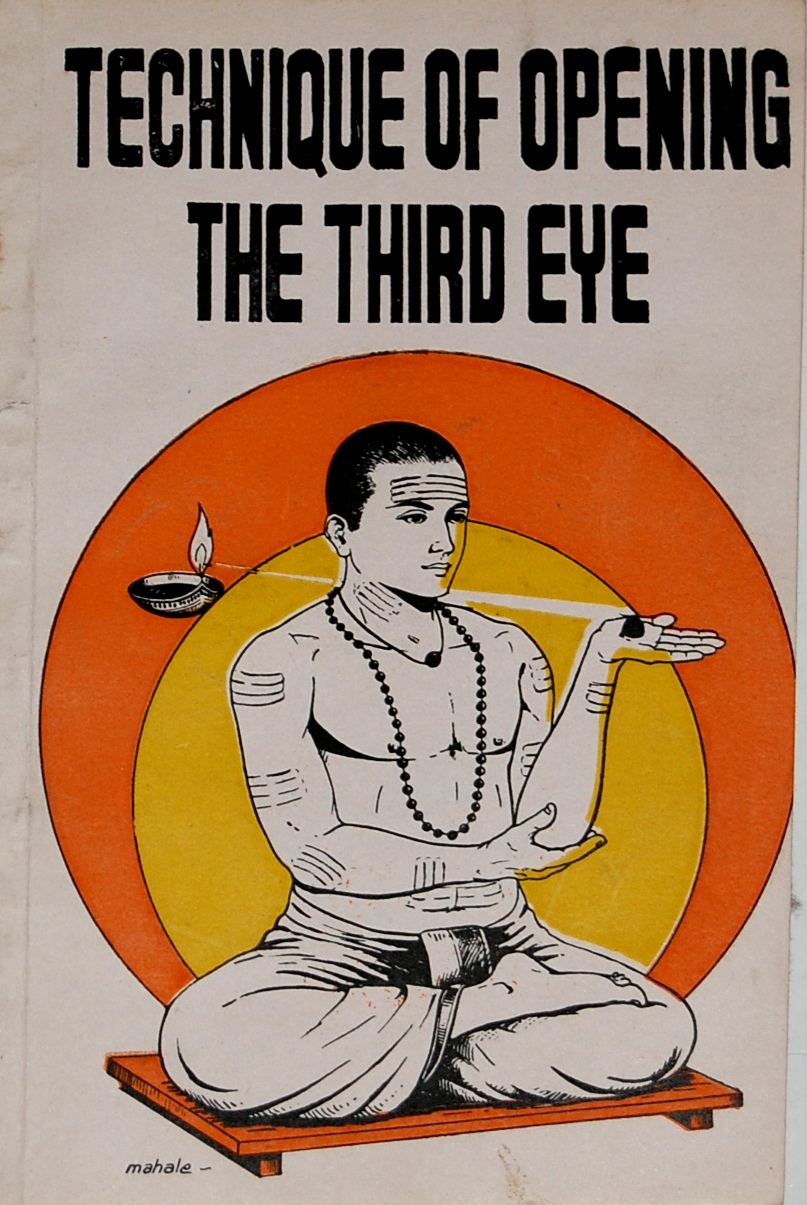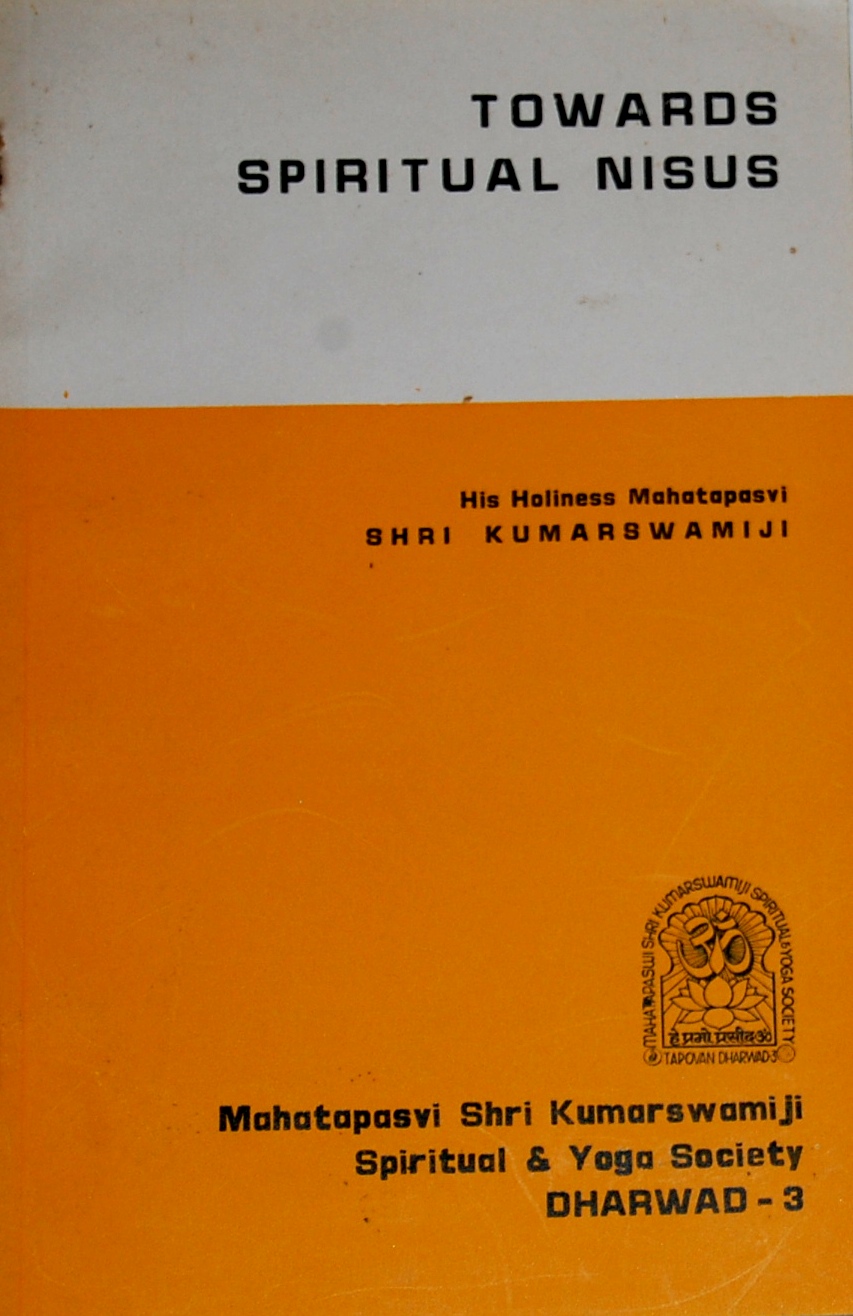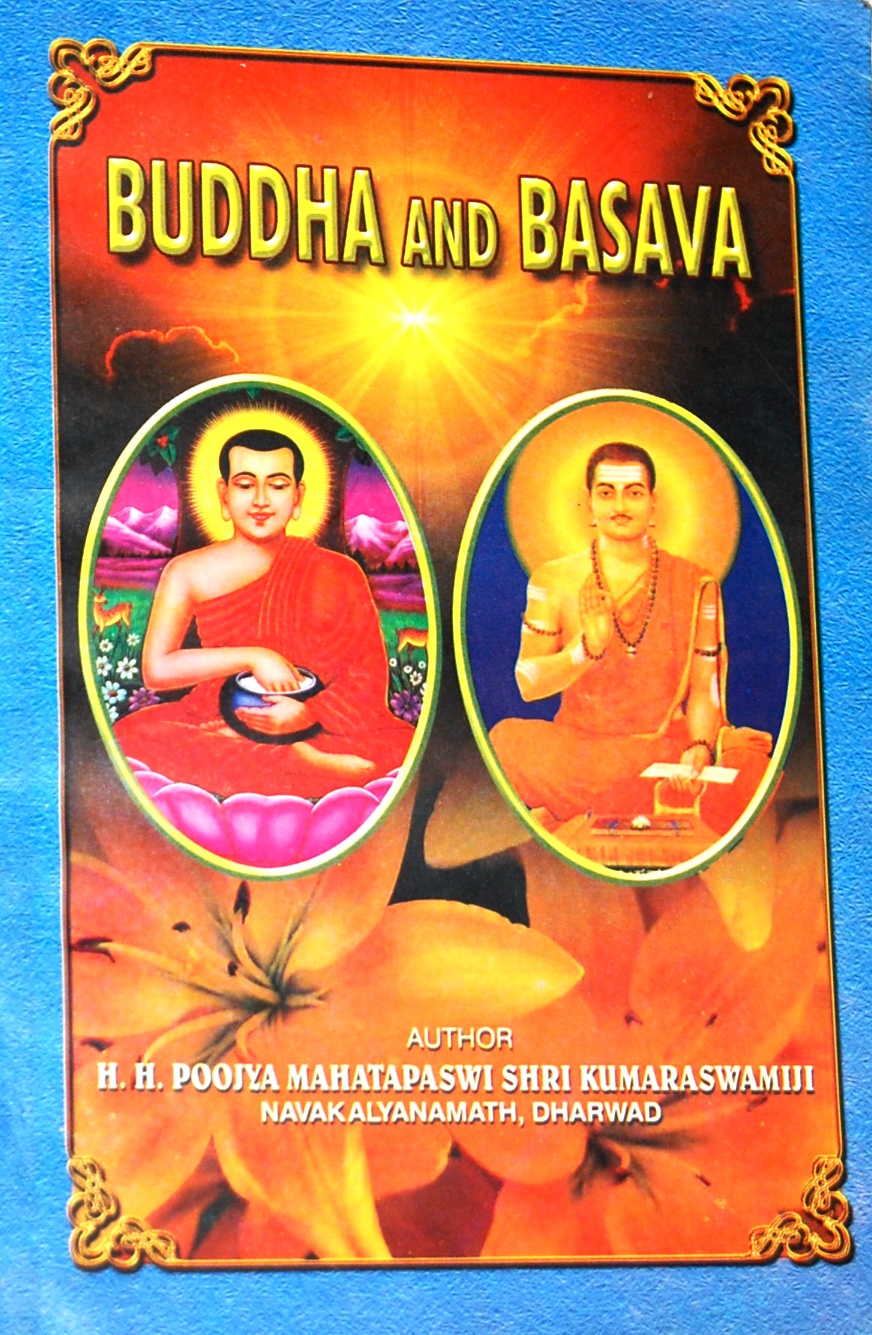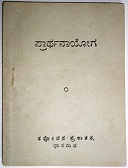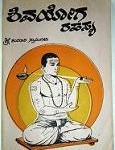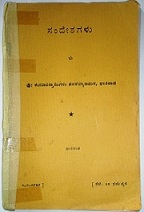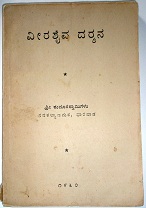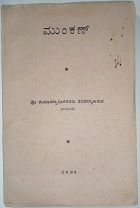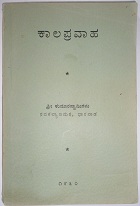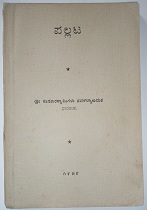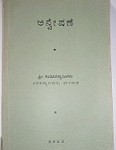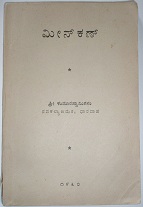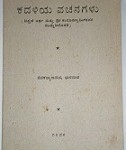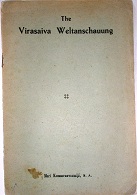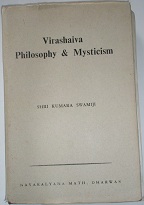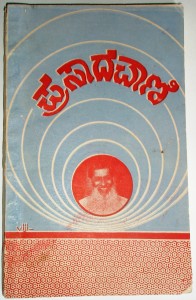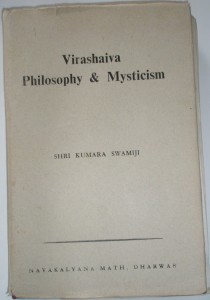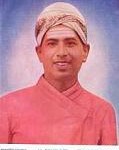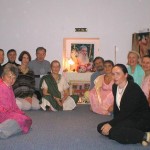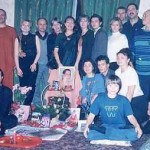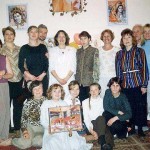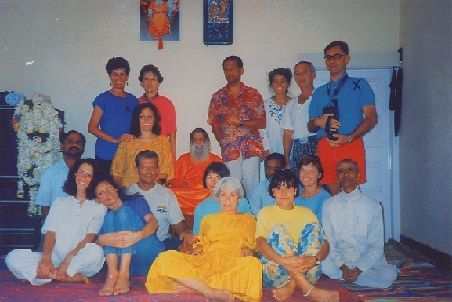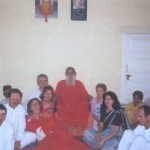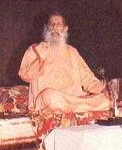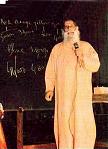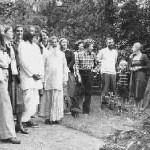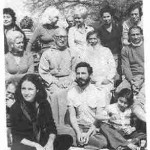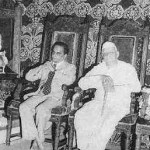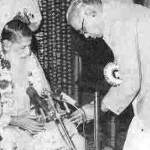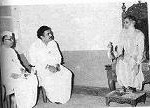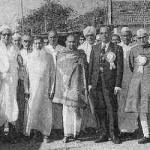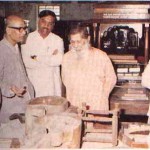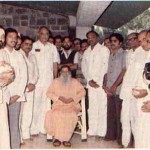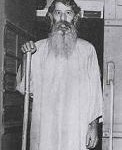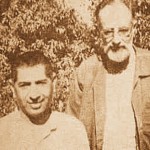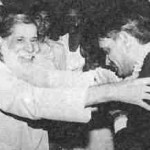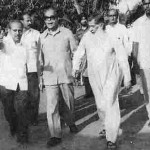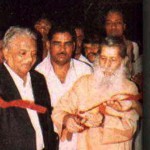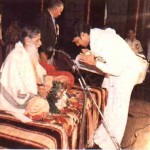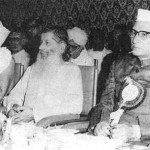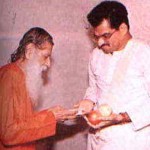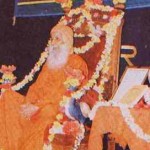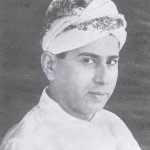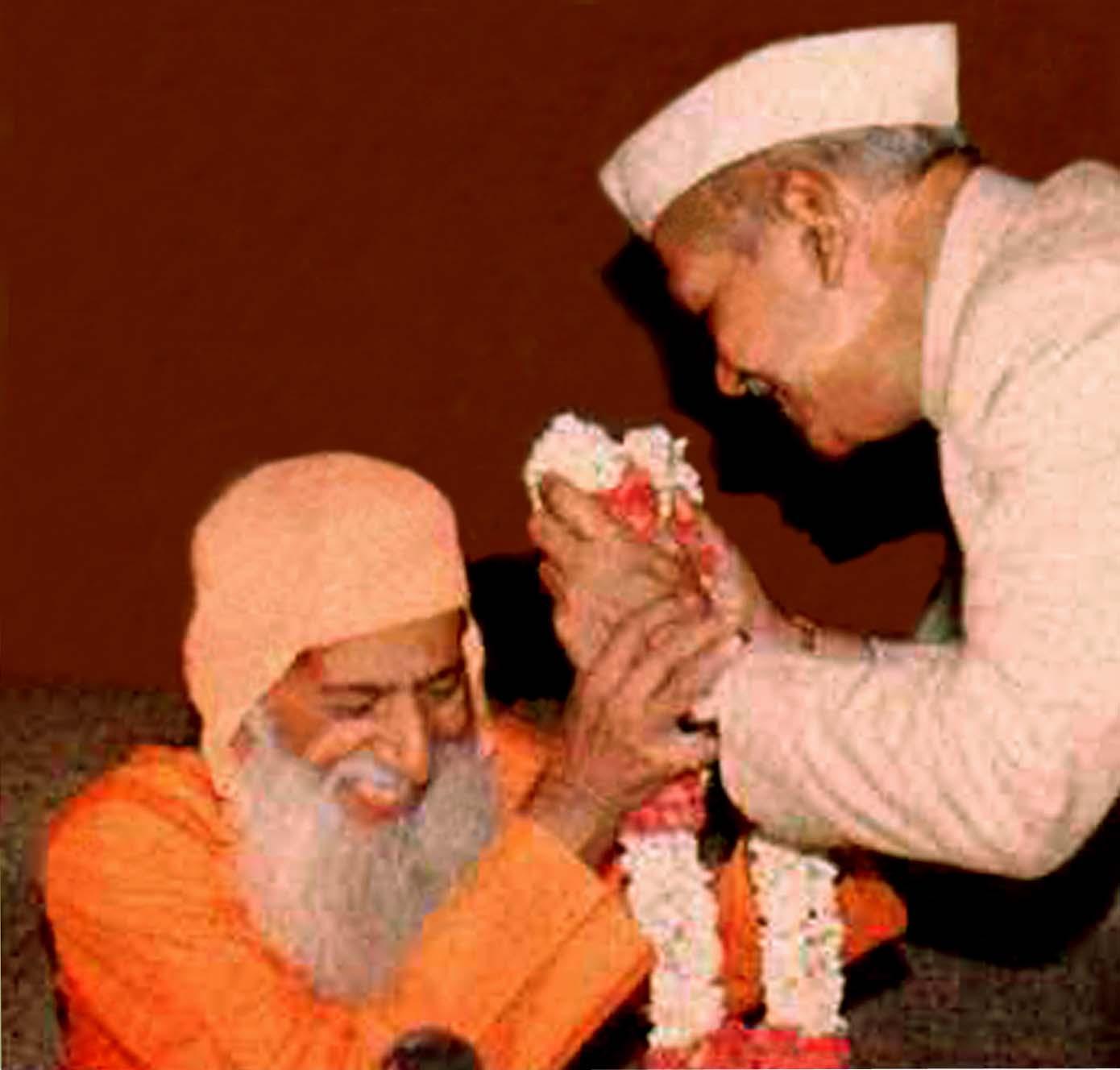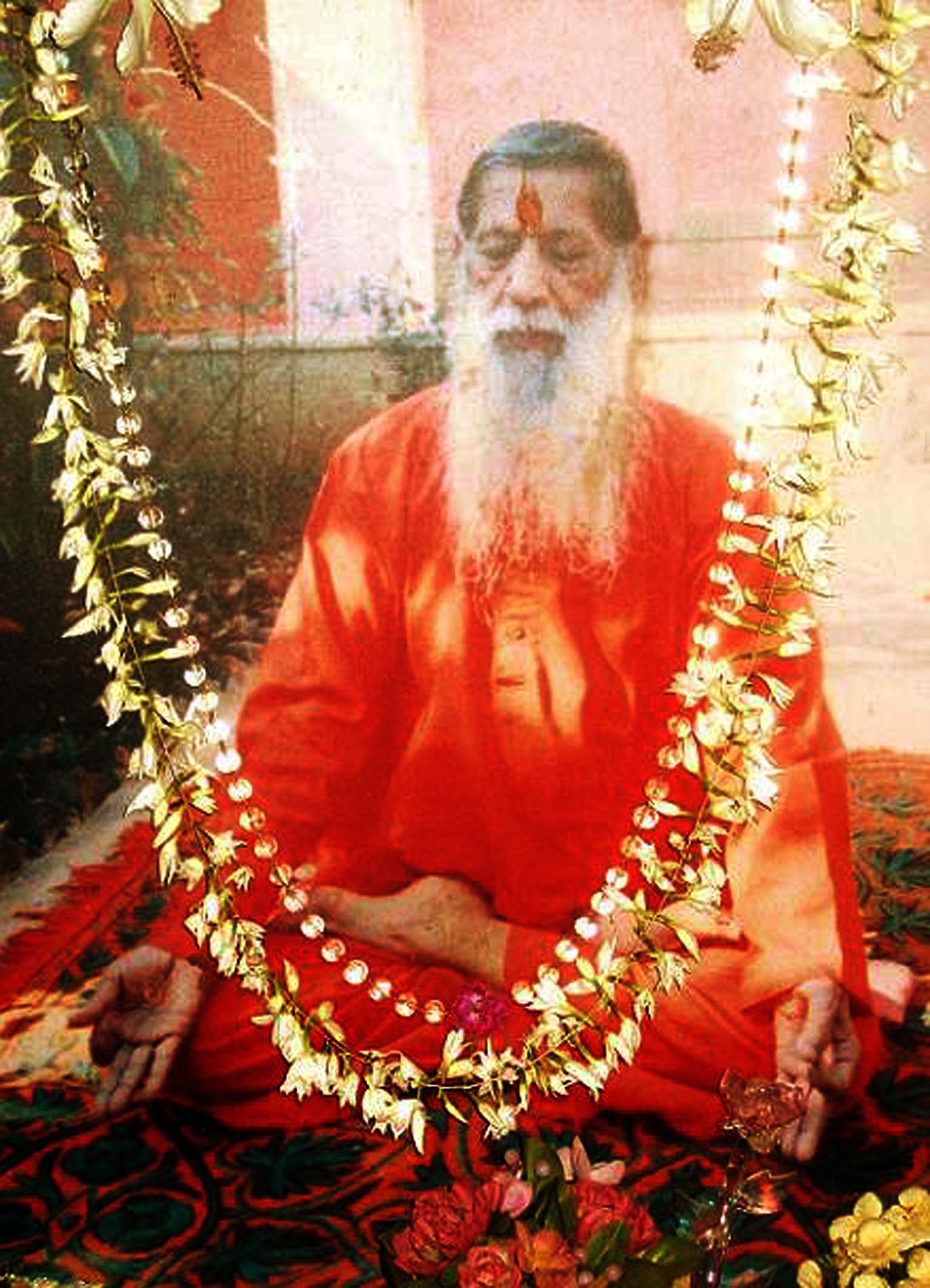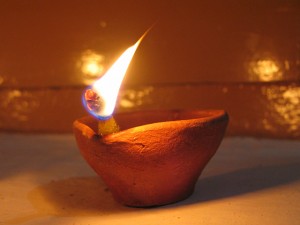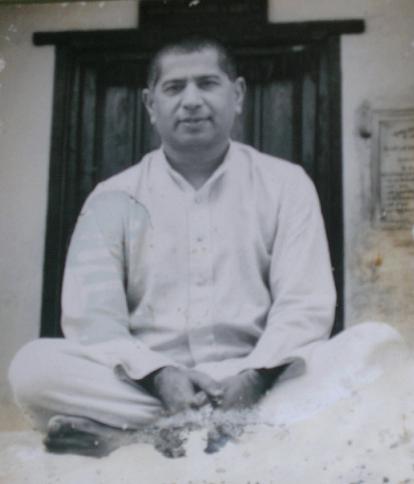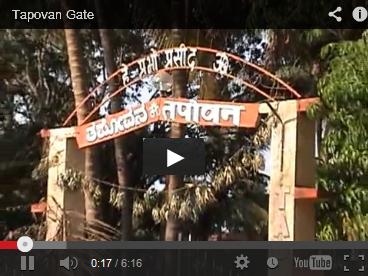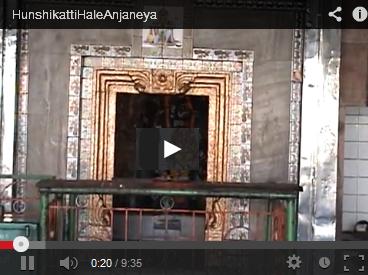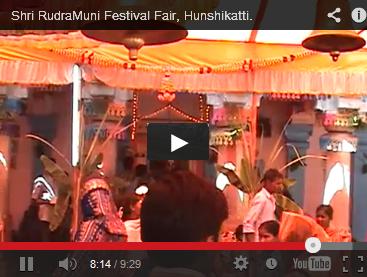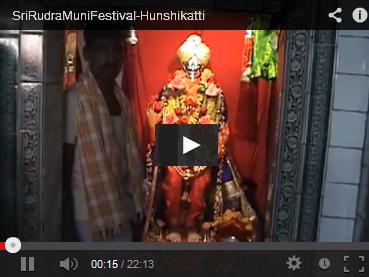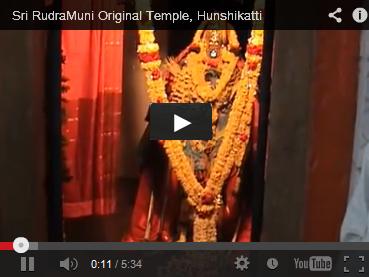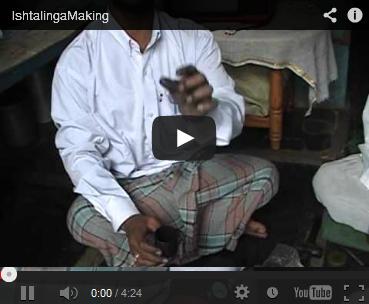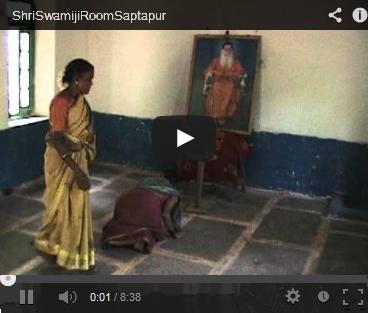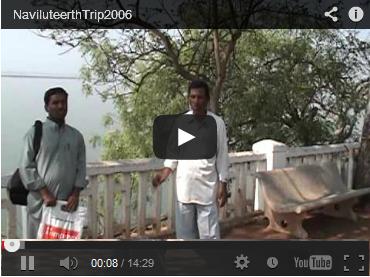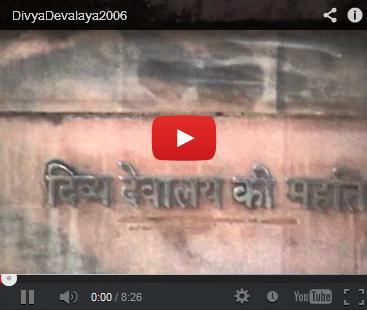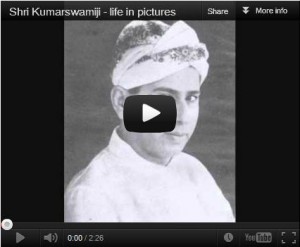The spiritual opening in many of us is occasional – the flicker of light comes and goes. But in Prabhu, it was all opening and he could freely move both in the spheres of spiritual silence and of secular expression. In his itinerant rounds Prabhu, as a Jangama, withdrew the veil of ignorance directly from a sadhaka (spiritual aspirant) and revealed the potentiality of a life Divine. Being a direct centre of spiritual dynamism, he could readily remould the initiate and effect immediate conversion of character. Testimonies to such powers have been held by many illustrations in the ‘Shunyasampadane’ and by persons who came under the spell of his spiritual influence. He realized transcendence, tasted the sweetness of the play, felt the interference of the Divine in the cosmic affairs of men and enjoyed the grace of the Divine which would give itself to save humanity from ignorance. Prabhu is not a mere metaphysician but a real master of excellence and perfection.
Prabhu, who is otherwise known as Allama, Allaya, Allama Prabhu or Prabhudevaru, was probably born in the very beginning of the 12th century. The exact date of his birth is neither known nor has it been ascertained by any of his biographers. His biographers can be divided into two groups: one holding all too human and the other all too divine view of him. Both views are wrong, for both lack the historical perspective and predominantly represent a mythological view. Yet out of this legendary outlook we can glean a few historical facts. Prabhu was undoubtedly born of the human parents at Ballegavi, a village near Banavasi. His father’s name was Nirahankara and his mother’s, Sujnani. Karavura seems to be his family name. Ballegavi was set in the midst of palm trees, water-pools and rice fields. The temple of Goggeshwara or Guheshwara adorned this inspiring setting. His parents were a devout couple and Goggeshwara was their family deity. Sujnani had often visitations from God, Goggeshwara, in her dreams. Nirahankara was the head of a dance school and was well versed in three branches of music. But a secret longing was gnawing at their hearts. It was the longing for a child. In her daily prayers, Sujnani appealed to God to bless her with a child. One day she dreamt that she had been possessed by God. In the temple opposite her house the image of Shiva quickened to life under her own eyes. A ray of light penetrated to the depth of her being. In the course time, she conceived and gave birth to a child. The child, whom the world was to know as the Vairagya Chakravarti (the supreme renunciate) was named Prabhu. He was a little boy full of fun and life. Nobody imagined what giddy heights, what tremendous depths lay hidden in the little body of this charming child. His artistic temperament and prowess were revealed when he was only six years old. He had inherited from his father’s artistic temperament. A passionate instinct for the beautiful was the first channel which brought him in contact with God. But there was a rich undercurrent of asceticism which occasionally peeped through his demeanour. The mutually conflicting instincts for the artistic and the ascetic and for the beautiful and sublime struggled within him for supremacy. In the end, the ascetic instinct got the upper hand and turned him into a renowned ‘renunciate’.
The child, Prabhu, matured into boyhood and attained youth. He was tall, square shouldered, broad chested and well built. He had a rosy complexion, a round face and a pair of lustrous eyes. The grace and dignity of his bearing, the irresistible charm of his eyes, the splendid music of his rich deep voice, and his artistry in playing the mrdanga would enthrall anybody that came in his contact. Prabhu could captivate the hearts of his listeners, but his heart was irresistibly drawn to God. He was therefore seized with unrest, as unrest born of an anguish or the pangs of separation from God. The pangs of separation deepened into an alternate joy and sorrow, and began to flow in sayings through his poetic heart. His youth was not all smooth. It seems that maya often tempted him, but happily he did not succumb to her temptations. He beguiled Cupid, the God of Love, by his self-devotion to his ideals. He emerged triumphant out of the ordeal set in his mind by the conflicting trends of the pangs of separation from God on the one hand, and of the temptations of maya on the other.
Prabhu left home in the prime of his youth in search of God and Guru. This event is not an isolated act of heroism, but it proceeds from a habit of heroism cultivated in secret, preparing itself unconsciously for the sudden call.
Prabhu devoted his whole life to the noble cause of realizing God and God is more than family, more than country, more than humanity. The devotion to a noble cause will confer a thousandfold more benefits on the world than devotion to wife, family, friend or country.
The spiritual opening in many of us is occasional – the flicker of light comes and goes. But in Prabhu, it was all opening and he could freely move both in the spheres of spiritual silence and of secular expression. In his itinerant rounds Prabhu, as a Jangama, withdrew the veil of ignorance directly from a sadhaka (spiritual aspirant) and revealed the potentiality of a life Divine. Being a direct centre of spiritual dynamism, he could readily remould the initiate and effect immediate conversion of character. Testimonies to such powers have been held by many illustrations in the ‘Shunyasampadane’ and by persons who came under the spell of his spiritual influence. He realized transcendence, tasted the sweetness of the play, felt the interference of the Divine in the cosmic affairs of men and enjoyed the grace of the Divine which would give itself to save humanity from ignorance.
The Divine Grace alone has the power to intervene and change the course of universal justice. The great work of the Master or Guru is to manifest the Divine Grace upon earth. To be a disciple of the Master is to become an instrument of the Grace Divine. Prabhu became the disciple of Animisha, the great Master of the embodiment of the Divine Grace. The Divine Grace that descended from Animisha and rushed into Prabhu enabled him to change the course of justice and challenge the callousness of karma. Prabhu became entirely free from karmamala.
«When Grace strikes,
A clod of earth is turned to a pile of gold.
The common stone is charged with alchemy;
When Grace strikes
The Fortune that for years and years I sought,
Look, now flashes in my sight;
There, in a temple buried in earth,
I have seen a Gem,
And cast my past behind me,
Forever, oh, Guheshwara! »
«The creeper I sought so long.
Is now about my leg entwined.
The longing of my heart is now
Within my grasp.
Like a poor man stumbling upon a trove,
With a seeker’s tireless steps I have come.
And seen the Inconceivable;
And beheld the sweep of my consciousness;
My whole being, within and without,
Bathed in supernal splendour,
I have gazed at the Source of all light;
I have seen my Supreme Master
With his gaze of unfathomable wonder
Concentrating upon the emblem on his palm.
And having seen, I have been saved,
Oh! Guheshwara. »
The meeting of Prabhu with Animisha took place under strange circumstances. In a temple buried underground, Animisha was seated in a lotus position with Linga on his palm and lost in meditation. Meditation is the very soul of life for by meditation a mystic can converse with God, solace himself in the river of Divine joy, bask himself in the Divine sunshine and view the mansions of eternity. No soul can preserve the bloom and delicacy of its existence without lonely musings and silent meditation, and the greatness of this necessity is in proportion to the greatness of the mystics’s advance in spiritual pursuits. Animisha was a master mystic because he was merged in meditation so profoundly that all his consciuosness rose to the superlative degree attended with a diffusion of the spiritual light. The light was so resplendent and so remarkable that it permeated his whole body, every cell of which was surcharged with divine electricity. Scarcely did Prabhu enter the temple when he was suddenly transformed into a divine man by the transcendent light of Animisha. The life-force of Animisha left his body and lingered in Prabhu through Ishtalinga. Since then Prabhu remained steadfast in the superconscious state without reverting to the ordinary state of blundering consciousness. Prabhu was never remiss in realizing the irresistible power of the Divine Grace that descended through Animisha and almost in a poetic vein he describes its effect.
The meeting of Prabhu and Animisha, as Prabhu himself relates, was like the meeting of mutes; for, as Animisha was lost in trance, he remained without speech and action. Prabhu was eager to have his initiation, but Animisha was silent-bound. How could it be effected? It was effected through the silent transmission of power (shakti pata prayoga), through the transfer of Linga from the palm of one’s hand to the palm of another. The Linga, charged with power, touched Prabhu and turned him into an adept by emptying him of karmamala (three kinds of karma – past or sanchita, present or prarabdha and future or agami).
In Virashaiva terminology, Linga is the grace of Guru formulated. It cannot be gainsaid that the grace of Animisha wrought a miraculous change in Prabhu. Animisha, a marvel of silent dynamism and magnetic personality, attracted Prabhu. He was steeped in God consciousness from which he radiated silent light which sparks out of a gospel of silence that goes in the heart of Prabhu. Animisha neither speaks nor acts, yet he has moved Prabhu intensely in the realm of the Divine. The silent communion has been effected by one inspiring the other. Of course, words fail to express this intimate communion.
Prabhu, being freed from the fetters of malatraya by virtue of his self-discipline, became a pure man, a perfect man, a superman, a cosmic man. Such a one is termed Sharana or Jangama in Virashaivism. Sharana in virtue of his essence is the cosmic thought assuming flesh and connecting the Absolute with the world of nature. God and man become one in the perfect man – the enraptured prophet or saint whose religious function as a mediator between man and God corresponds with his metaphysical function as the unifying principle by means of which the opposite terms of reality and appearance are harmonized.
Prabhu is not a mere metaphysician but a real master of excellence and perfection. The peculiar excellence of man is his power of thought by which he surpasses and rules all forms of life.
This article – ‘Allama Prabhu – Veerashaiva Prophet’ – is taken from H.H.Mahatapasvi Shri Kumarswamiji-s book, ‘Prophets of Veerashaivism’.








